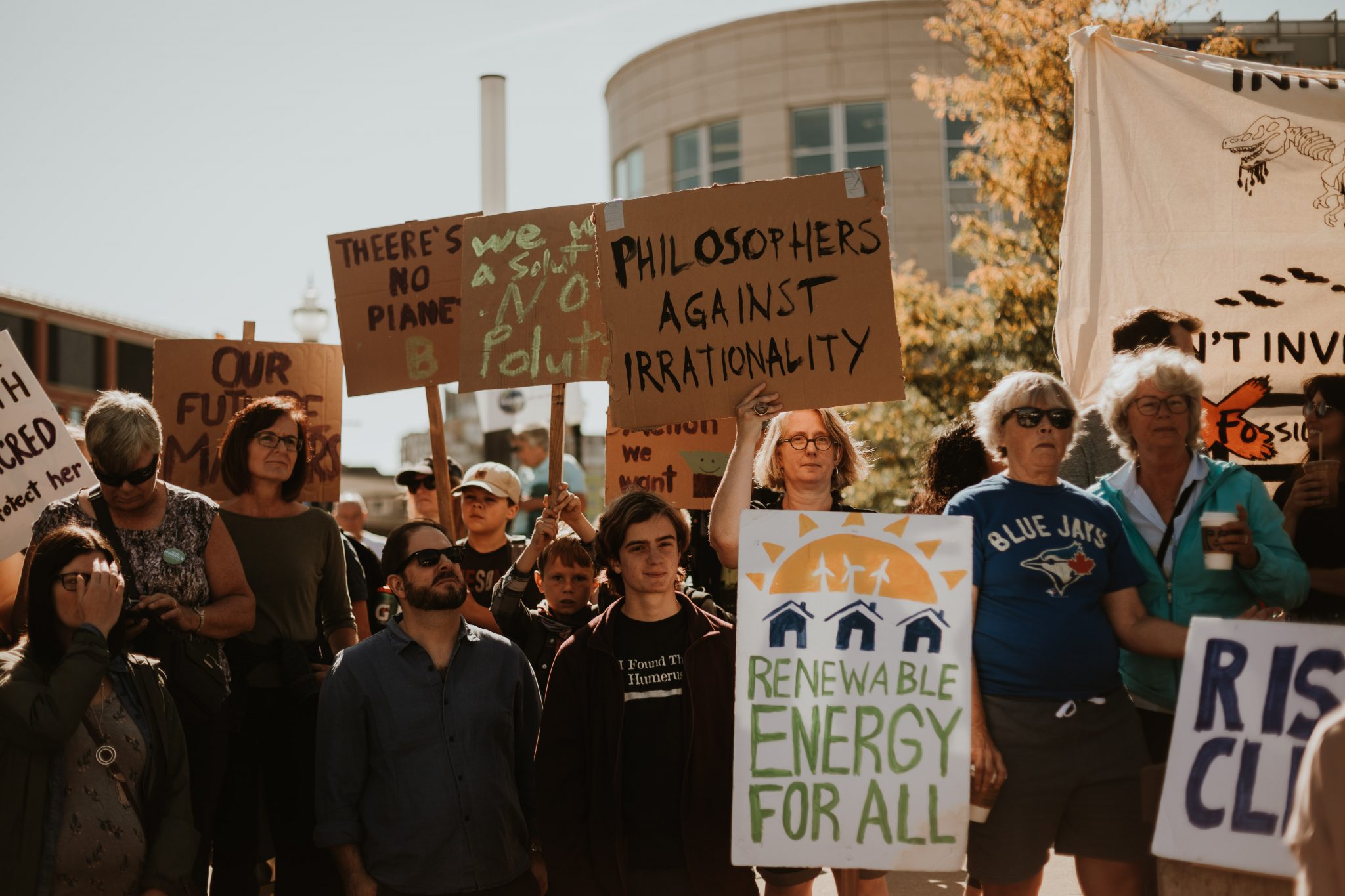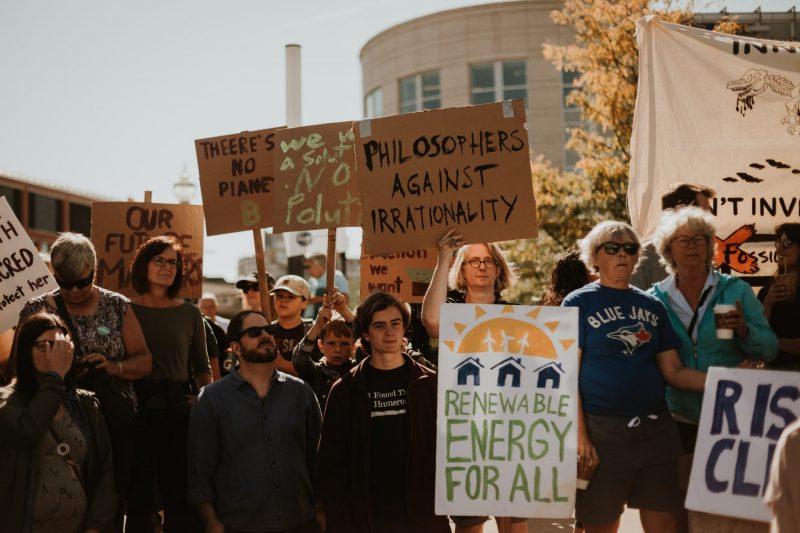Global Climate Strike at Waterloo Town Square attracts local activists of all ages


An estimated 5,000 people attended the Global Climate Strike at Waterloo Town Square on Sept. 27 to fight for climate change justice in Waterloo Region.
Attendees ranged in age, with children and teens notably present among older generations in the massive crowd that was present. Many were holding creatively constructed signs that voiced their outrage and discontent with the current state of the world. After the protest was complete, signs were gathered to use for future strikes so that no materials were wasted.
People began arriving at the protest at 11:30 a.m., mostly by foot or public transportation — as suggested by the Facebook event page — in order to further the sustainable message that was being promoted by the organizers.
The turnout was impressive, with large groups crowded in the square and surrounding areas. Students from Wilfrid Laurier University and Waterloo University were present and participated in the march as well.
The #FridaysForFuture movement started with 16 year-old climate change activist Greta Thunberg, who began protesting outside of Swedish Parliament in 2018 and has become known for her impassioned speech that she recently delivered to the United Nations General Assembly.
“Just from assessing the amount of our community that came out, and the energy was there, it was amazing. I think it was incredibly successful. It was absolutely beautiful and profound, and still managed to deal with the seriousness of the issue, the crisis we’re facing, so I think it managed to really balance all of those aspects tremendously well to really bring [the] community together in dialogue for this,” said Kai Reimer-Watts, a community psychology PhD student at Wilfrid Laurier University and one of the Climate Strike WR Organizers of RISE Waterloo Region.
The goal of the protest was to hold political leaders accountable for what scientists are deeming a climate emergency: that the world has less than 10 years to solve and to raise awareness for the environmental issues that are currently harming the planet at an alarming rate.
In terms of local action, Reimer-Watts believes that the city of Waterloo should be taking stronger action to combat the effects of climate change in multiple different ways in order to prevent the further destruction of the earth.
“All of the science through the IPCC really points towards the need for significant change over the next ten years. That means specific things like trying to reduce our emissions as quickly as possible, which can only be done if we’re also working to phase out fossil fuels as an energy source in our society,” Reimer-Watts said.
“There are readily available replacements for fossil fuels. Our burning of this resource is directly jeopardizing our future, and so the biggest thing that, at the local level and other levels of government as well, is that we need plans to decarbonize our economies as quickly as possible. To move onto clean energy, to move towards more sustainable forms of agriculture, which is relevant in this region as well: animal agriculture has a high carbon footprint and it’s important to emphasize that too.”
All of the science through the IPCC really points towards the need for significant change over the next ten years. That means specific things like trying to reduce our emissions as quickly as possible, which can only be done if we’re also working to phase out fossil fuels as an energy source in our society.
— Kai Reimer-Watts, organizer of Climate Strike WR
The tech community in Kitchener-Waterloo, specifically, has promising potential in making tangible changes and furthering the progress with climate change advocacy efforts and should be working harder to take more tangible action.
“We are very lucky that we have so much knowledge and innovation already happening here. If you look at the tech sector in this region, it is really cutting edge work, some of that work is being dedicated towards climate solutions and clean energy, but I would say not enough. For the tech companies that exist in our region, they really should be trying to, I would say, dedicate more of that intelligence and innovation towards solutions for one of our greatest challenges for humankind,” Reimer-Watts said.
“Then making those solutions accessible to people so that people who are from all different incomes, interests, backgrounds, are able to access these solutions more easily and implement them in our own lives. A big barrier for people is just often access to either the knowledge around what to do or just the tools themselves.”
For university and college students looking to get involved and contribute towards climate change action, there are a variety of options.
“I think especially in today’s world where leadership and change is so needed I would hope that more and more students would see that opportunity and really step on it, that it’s a whole other form of education and really can be a valuable learning experience and they’ll take with them whatever they end up doing after school also,” Reimer-Watts said.
“So that kind of hands-on experience that you get by working with groups on campus around real-world issues, I don’t really think there’s a replacement for that, I think that it’s totally complimentary to what a lot of students are studying and I would just hope that more students push themselves out of their comfort zone to realize how much learning can take place outside of the classroom and the real power we have as young people to lead, that’s what today was all about, we have immense power when we work together.”
The next climate strike is scheduled to take place on Nov. 1, with details shared on the KW Fridays for Future Facebook page.
In order to go down a path of positive improvements and actionable reform, people need to continue fostering the dedication and
“And clearly, for this to translate into real change, we need to continue the momentum,” Reimer-Watts said.


